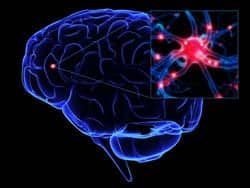
“Approved therapies for multiple sclerosis work by reducing the initial myelin injury—they do not promote myelin regeneration,” explains Veronique Miron, Medical Research Council Centre for Regenerative Medicine, University of Edinburgh.
The study, Miron says, could assist in spotlighting new treatments to enhance myelin regeneration and in restoring lost function in MS patients. The study appears in Nature Neuroscience and targeted myelin regeneration in human tissue samples and in mice.
The researchers note that they now plan to execute further research designed to assess how activin-A works and whether its effects can be enhanced. Susan Kohlhaas, head of biomedical research, the MS Society, emphasizes that therapies are urgently needed to help slow the disease’s progression. “We’re delighted researchers have identified a new, potential way to repair damage to myelin. We look forward to seeing this research develop further,” Kohlhaas says.
[Source: University of Edinburgh]




